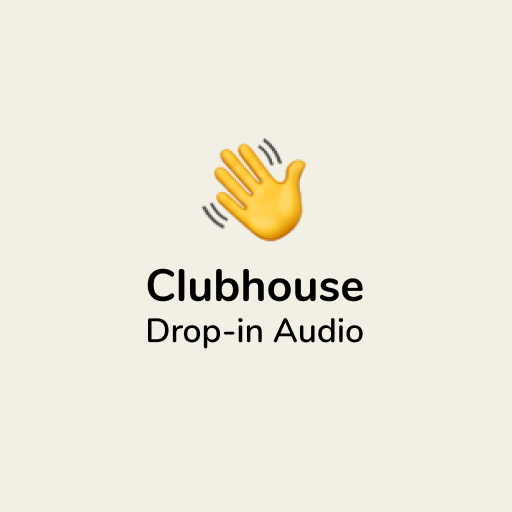Audio-based social startup Clubhouse has finally released an Android app at a time when the much-hyped company has seen its popularity start to decline.
The app, initially available only in beta in the U.S. ahead of a wider global launch and release, is, like the iOS version, still invite-only. That means that although Android users now have the potential to access the service, they can’t simply sign up.

“Our plan over the next few weeks is to collect feedback from the community, fix any issues we see and work to add a few final features like payments and club creation before rolling it out more broadly,” Clubhouse said in a blog post. “As a part of the effort to keep the growth measured, we will be continuing the waitlist and invite system, ensuring that each new community member can bring along a few close friends.”
Clubhouse has become one of the most hyped tech startups over the last year, with venture capital funding to match. In April, Clubhouse raised a Series C round on a valuation of $4 billion after having previously raised $110 million. It counts among its investors top-tier venture capital firms such as DST Global, Tiger Global and Andreessen Horowitz.
Suffice to say, the company is flush with money to spend, which is why its seemingly glacial pace in bringing to market an Android app has been surprising. Until recently, even iOS- and invite-only, Clubhouse has found a willing audience.
But lately the interest appears to be waning. After seeing 9.6 million downloads in February, the number of downloads dropped to about 900,000 in April, according to data from Sensor Tower. The decline in interest also comes as other social media companies enter the market.
After holding unsuccessful talks to acquire Clubhouse in April, Twitter Inc. launched a rival service called Twitter Spaces May 3 and immediately made it available to all Twitter users with more than 600 followers. Facebook Inc. also announced in April that it will release new audio products, including a competitor to Clubhouse called “Live Audio Rooms” over the summer.
Although it will take time for both Twitter and Facebook to catch up to Clubhouse, both have massive existing audiences that they can tap into. The longer Clubhouse continues to dither on a full Android rollout and keeps its platform invite-only, the more likely it could lose their first-mover advantage.
Image: Clubhouse
The app, initially available only in beta in the U.S. ahead of a wider global launch and release, is, like the iOS version, still invite-only. That means that although Android users now have the potential to access the service, they can’t simply sign up.

“Our plan over the next few weeks is to collect feedback from the community, fix any issues we see and work to add a few final features like payments and club creation before rolling it out more broadly,” Clubhouse said in a blog post. “As a part of the effort to keep the growth measured, we will be continuing the waitlist and invite system, ensuring that each new community member can bring along a few close friends.”
Clubhouse has become one of the most hyped tech startups over the last year, with venture capital funding to match. In April, Clubhouse raised a Series C round on a valuation of $4 billion after having previously raised $110 million. It counts among its investors top-tier venture capital firms such as DST Global, Tiger Global and Andreessen Horowitz.
Suffice to say, the company is flush with money to spend, which is why its seemingly glacial pace in bringing to market an Android app has been surprising. Until recently, even iOS- and invite-only, Clubhouse has found a willing audience.
But lately the interest appears to be waning. After seeing 9.6 million downloads in February, the number of downloads dropped to about 900,000 in April, according to data from Sensor Tower. The decline in interest also comes as other social media companies enter the market.
After holding unsuccessful talks to acquire Clubhouse in April, Twitter Inc. launched a rival service called Twitter Spaces May 3 and immediately made it available to all Twitter users with more than 600 followers. Facebook Inc. also announced in April that it will release new audio products, including a competitor to Clubhouse called “Live Audio Rooms” over the summer.
Although it will take time for both Twitter and Facebook to catch up to Clubhouse, both have massive existing audiences that they can tap into. The longer Clubhouse continues to dither on a full Android rollout and keeps its platform invite-only, the more likely it could lose their first-mover advantage.
Image: Clubhouse
Comments
Post a Comment